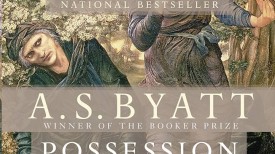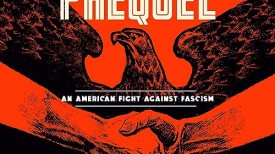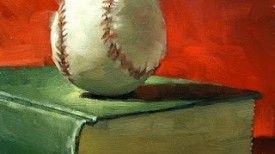PIONEERING FEMINIST POET ADRIENNE RICH DEAD AT 82
By Steve Gorman
LOS ANGELES (Reuters) - Poet and essayist Adrienne Rich, a feminist literary figure celebrated as much for deeply personal reflections on her own life as for sometimes-biting social commentary, has died at age 82, family members said on Wednesday.
Rich, who received a galaxy of honors, including the Ruth Lilly Poetry Prize and National Book Award, for a body of work that spanned seven decades and ranks among the most anthologized of the 20th century, died on Tuesday at her home in Santa Cruz, California, daughter-in-law Diana Horowitz said.
Horowitz said Rich succumbed to complications from rheumatoid arthritis, from which she suffered for many years.
Rich, who lived and wrote openly as a lesbian for most of her adult life, starting in an era when homosexuality was widely condemned in American society, became a pioneering champion for women's rights and the rights of others who were disadvantaged.
"She accomplished in verse what Betty Friedan, author of 'The Feminine Mystique,' did in prose," Margalit Fox wrote of the pioneering feminist bard in The New York Times obituary.
The Poetry Foundation's website called her "one of America's foremost public intellectuals."
Rich was perhaps best known for her politically charged work during the Vietnam war era, as typified by her 1973 masterpiece collection "Diving into the Wreck: Poems 1971-1972," which won the National Book Award.
Later in the life, in 1997, she created a stir by refusing the National Medal of Arts, the highest honor awarded by the U.S. government to artists and artistic patrons, on political grounds.
"I could not accept such an award from President Clinton or this White House," she wrote, "because the very meaning of art as I understand it is incompatible with the cynical politics of this administration."
Rich evolved greatly as a poet over the years, both stylistically and thematically, starting out with very traditional, formal verse that dwelled largely on personal experiences.
But her work grew more free-wheeling and more political as she grew older, said D.A. Powell, a fellow poet and University of Iowa professor who was nominated with her in 2004 for the National Book Critics Circle Award.
Rich won that year for a collection of poems written in the aftermath of the September 11 attacks onAmerica, "The School Among the Ruins."
Other notable volumes of poetry -- among more than two dozen she published -- include "Snapshots of a Daughter-in-Law: Poems 1954-1962," "Necessities of Life" (1966) "Leaflets" (1969), "The Will to Change" (1971) and "Your Native Land, Your Life" (1986).
She also was acclaimed for numerous essays on feminism, racism, politics and other subjects, including the landmark collection "Of Woman Born: Motherhood as Institution and Experience," published in 1976, the same year she moved in with her longtime lesbian partner, Michelle Cliff.
A Poetry Foundation bibliography lists 10 volumes of prose in all by Rich.
As a poet, her personal observations and reflections often became intertwined with or used as metaphors for her social commentary, Powell said.
"She sought always in her work to discover the truth about her life, and through that lense to discover the truth about women's lives and the lives of people who came from marginal or cross-cultures," he told Reuters.
"Her poetry is something that some people might categorize as poetry of witness," he added. "But witness is only one aspect of it. There's a kind of unsentimental, unselfish lense through which she articulates the simple joys and burdens of living, the journey of finding oneself."
Powell recounted how Rich in one poem titled "What Kind of Times Are These," dwelled on a patch of grass in the space between two stands of trees as she mulled a sense of collective fear in 2002, leading up to the U.S.-led invasion of Iraq.
"She's thinking about how people disappear, and how we're living in a country that's so full of dread," Powell said. "But she's not talking about war. She's talking about it in the language of houses and shadows and leaf mold."
Some of the same feeling of gloom, at a more personal level, was explored in one of Rich's earliest, and most widely published poems, "Aunt Jennifer's Tigers," written in 1945 by Rich when she was about 16. It has been included in virtually every major anthology of modern American poetry, Powell said.
Born in Baltimore in 1929, Rich's father was a renowned pathologist and Johns Hopkins professor. Her mother was a concert pianist.
A graduate of Radcliff University, she married a Harvard economic professor, Alfred Conrad, in 1953, and they had three children. Her spouse died in 1970 and six year later she and Cliff moved in together.
(Editing by Anthony Boadle)
© 2023 Books & Review All rights reserved.
Popular Now
1
Books to Read After 'Fourth Wing': Top Picks for Fantasy and Romantasy Fans

2
‘The Secret Public’ by Jon Savage Book Review: An Insightful Look Into the LGBTQ Influence

3
Stephanie Regalado's 'If They Only Knew' Column Is Now A Book, Unleashing 60 Anonymous True Stories to Empower Women

4
'No Wire Hangers' Scene That Almost Did Not Happen: New Book Reveals Faye Dunaway's Struggles

5
Rare First Edition of Aphra Behn's Novel 'Oroonoko' Discovered in Kent: A Historic Literary Find

Latest Stories
Book Reviews
‘The Secret Public’ by Jon Savage Book Review: An Insightful Look Into the LGBTQ Influence

Book News
Stephanie Regalado's 'If They Only Knew' Column Is Now A Book, Unleashing 60 Anonymous True Stories to Empower Women

Book News
'No Wire Hangers' Scene That Almost Did Not Happen: New Book Reveals Faye Dunaway's Struggles

Book Reviews
‘The Perfect Couple’ by Elin Hilderbrand Book Review: A Captivating Summer Mystery

Book News
New Book ‘The Franchise’ Reveals Penguins President Kyle Dubas’ ‘Biggest Mistake’ as Maple Leafs GM










